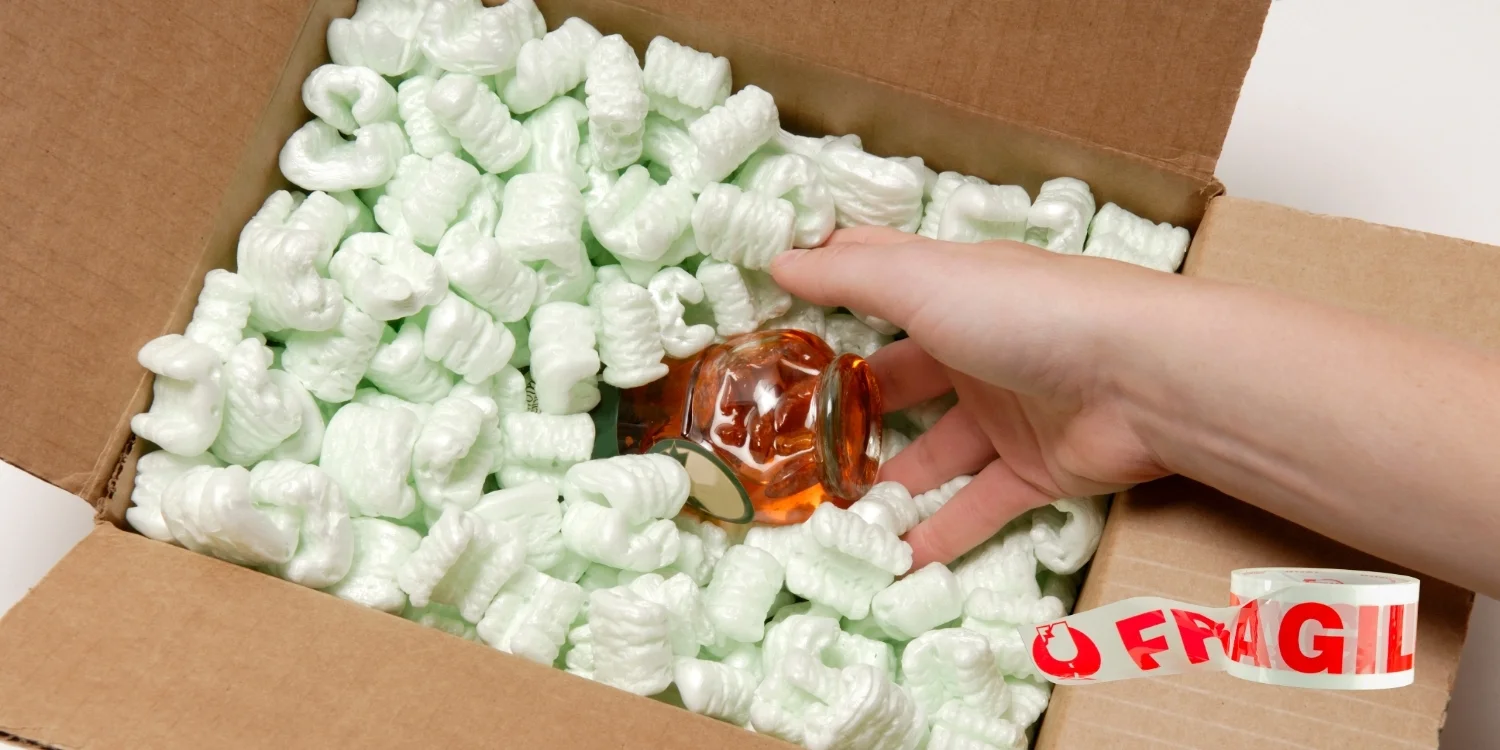When you’re packing fragile items like glassware, ceramics or electronics using the right packing materials is essential.
Proper packing reduces the risk of damage and ensures your items reach their destination safely.
Here’s a guide to the top special packing materials for fragile items that we as a best moving company of Chicago use for packing stuff of our clients, let’s have a look and learn how to pack fragile like a pro
Bubble Wrap
Bubble wrap is one of the most common and effective materials for protecting delicate items. The air-filled bubbles act as a cushion, absorbing shocks during transport.
- Wrap it around items like glass, ceramics or electronics.
- Use multiple layers for extra protection.
Packing Paper
Packing paper is soft and flexible making it ideal for wrapping fragile items. Unlike newspapers, it doesn’t leave ink stains.
- Wrap plates, glasses or any item with delicate surfaces.
- Crumple some paper to fill gaps in boxes for added cushioning.
Foam Sheets
Foam sheets are thin and lightweight, providing a protective barrier around your items. They’re perfect for stacking fragile items without scratching them.
- Place between plates, photo frames or mirrors.
- Combine with bubble wrap for double protection.
Packing Peanuts
Packing peanuts fill the empty spaces in a box, preventing items from shifting during transport. They are lightweight and provide excellent cushioning.
- Pour them around fragile items in a box.
- Ensure items are tightly surrounded to prevent movement.
Corrugated Inserts
Corrugated cardboard inserts add an extra layer of protection especially for items like bottles or electronics. They are sturdy and prevent direct contact between items.
- Place between items in the same box.
- Use pre-made inserts for wine bottles or glassware.
Stretch Wrap
Stretch wrap is a plastic film that keeps items secure and prevents them from moving. It’s particularly useful for bundling items together or securing bubble wrap.
- Wrap it around bundles of plates or electronics.
- Use it to keep drawers or lids in place during transport.
Specialty Boxes
Certain items, like TVs or mirrors require specialty boxes with built-in padding. These boxes are designed to fit specific shapes and sizes.
- Pack large fragile items like TVs or framed art.
- Always follow the box’s packing instructions for best results.
Air Cushions
Air cushions are inflatable bags that provide padding around fragile items. They’re reusable and offer great protection without adding much weight.
- Place them around delicate items in boxes.
- Use them for lightweight but fragile items like glassware.
Foam Corner Protectors
Foam corner protectors safeguard the edges and corners of items like mirrors, frames or TVs. They prevent chipping or breaking during movement.
- Place on the corners of rectangular or square items.
- Combine with other packing materials for full coverage.
Labels & Stickers
While not a physical protector, labeling your boxes as “Fragile” is crucial. It ensures handlers take extra care during the moving process.
- Place labels on all sides of boxes with delicate items.
- Use brightly colored stickers for visibility.
Conclusion
Packing fragile items doesn’t have to be stressful. By using these special packing materials, you can ensure your delicate belongings stay safe during transportation. Always handle with care and don’t skimp on materials—it’s worth the peace of mind.




